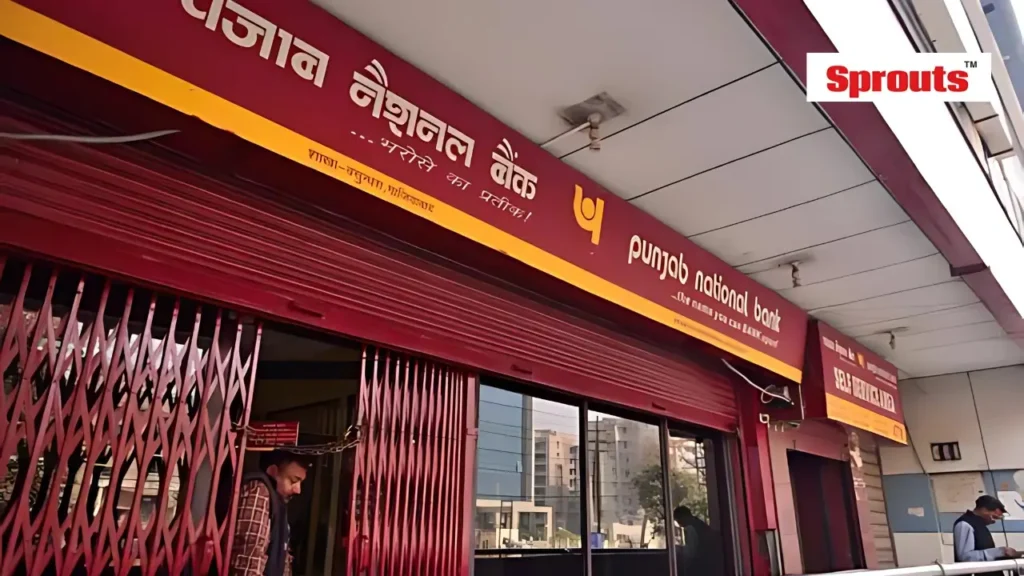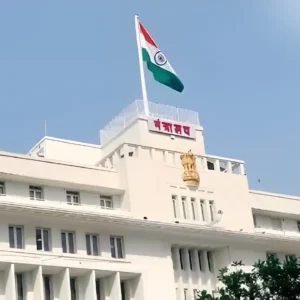ED Launches Money Laundering in Punjab National Bank Fraud Case
• ED Targets ₹60 Crore PNB Loan Scam
• Mumbai Pharma Firm in ED Money Laundering Net
• PNB Fraud: ED Probes Ankur Drugs & Pharma
Unmesh Gujarathi
Sprouts News Exclusive
Contact: +91 9322755098
- ED Launches Money Laundering in Punjab National Bank Fraud Case
- • ED Targets ₹60 Crore PNB Loan Scam
- • Mumbai Pharma Firm in ED Money Laundering Net
- • PNB Fraud: ED Probes Ankur Drugs & Pharma
- PNB Loan Fraud: Allegations of Fund Diversion and Stock Inflation
- CBI Chargesheet Opens the Door for ED’s Money Laundering Case
- High-Profile Case Draws Scrutiny From Financial Regulators
- SIT Observes Increasing Corporate Banking Frauds
- Next Steps in the Investigation
The ED has launched a money laundering probe against Mumbai-based Ankur Drugs and Pharma Ltd and director Giriraj Vijayvargiya over an alleged ₹60 crore PNB loan fraud. The case involves inflated stock values, fund diversion, and NPA classification, following a CBI chargesheet filed earlier this year in Chandigarh court.
The Directorate of Enforcement (ED), Chandigarh, has initiated a money laundering investigation into Mumbai-based Ankur Drugs and Pharma Limited and its director Giriraj Vijayvargiya over an alleged ₹60 crore loan fraud involving Punjab National Bank (PNB).
The ED has filed an application before the Chandigarh District Court, seeking the Central Bureau of Investigation (CBI) to transfer all case-related records — including the FIR, chargesheet, and supporting evidence — to facilitate its probe under the Prevention of Money Laundering Act (PMLA).
PNB Loan Fraud: Allegations of Fund Diversion and Stock Inflation
According to official records, PNB’s chief manager Nand Kishore Barnwal lodged a complaint with the CBI on July 17, 2023, alleging that Ankur Drugs and Pharma Limited had obtained a short-term loan of ₹50 crore and a term loan of ₹30 crore in 2009 for the expansion of its Baddi manufacturing unit.
While the bank ultimately sanctioned around ₹60 crore, the company allegedly defaulted on repayments, leading to the account being classified as a Non-Performing Asset (NPA) by 2012, with dues exceeding ₹60 crore.
Investigators claim that the company inflated stock values in its statements to obtain higher credit limits and diverted sanctioned short-term loans for long-term purposes — a direct violation of loan terms. Such activities, according to PNB, constituted a deliberate act of fraud and misuse of funds.
CBI Chargesheet Opens the Door for ED’s Money Laundering Case
Following the alleged default, PNB filed a formal complaint with the CBI, prompting the registration of an FIR against the company and its director. The CBI concluded its investigation in March 2025, filing a detailed chargesheet before the Chandigarh District Court.
The ED’s current move seeks to extend the investigation to determine whether the alleged fraud proceeds were layered, laundered, or invested in other assets to conceal their origin. Under PMLA provisions, any such activity could result in attachment of assets, freezing of accounts, and prosecution of those involved.
High-Profile Case Draws Scrutiny From Financial Regulators
The case has caught the attention of multiple enforcement agencies, as it falls within a broader pattern of bank loan frauds involving corporate borrowers. In recent years, the ED and CBI have jointly acted against several companies accused of inflating asset values, falsifying documents, and siphoning funds abroad.
Legal experts suggest that if the ED’s probe establishes that the defrauded funds were invested in movable or immovable properties, the agency could proceed to attach those assets under PMLA, impacting not only the company but also its directors’ personal holdings.
Also Read: Creditors Triumph as NCLAT Rejects Byju’s CoC Appeal.
SIT Observes Increasing Corporate Banking Frauds
The Sprouts News Investigation Team (SIT) has tracked a rise in large-scale corporate loan frauds, particularly in manufacturing and pharmaceutical sectors, where inflated stock audits and misrepresentation of turnover have been used to exploit banking loopholes.
In the Ankur Drugs and Pharma case, the alleged systematic siphoning of bank funds underscores the need for stricter pre-sanction verification and post-loan monitoring by financial institutions.
Next Steps in the Investigation
With the ED now actively pursuing the matter, the coming months will likely see asset tracing, forensic accounting, and cross-agency coordination to identify the money trail. If proven guilty under PMLA, the accused could face rigorous imprisonment and confiscation of properties.
The case is expected to become a benchmark in corporate banking fraud enforcement, with both the CBI and ED working in tandem to ensure accountability.

















